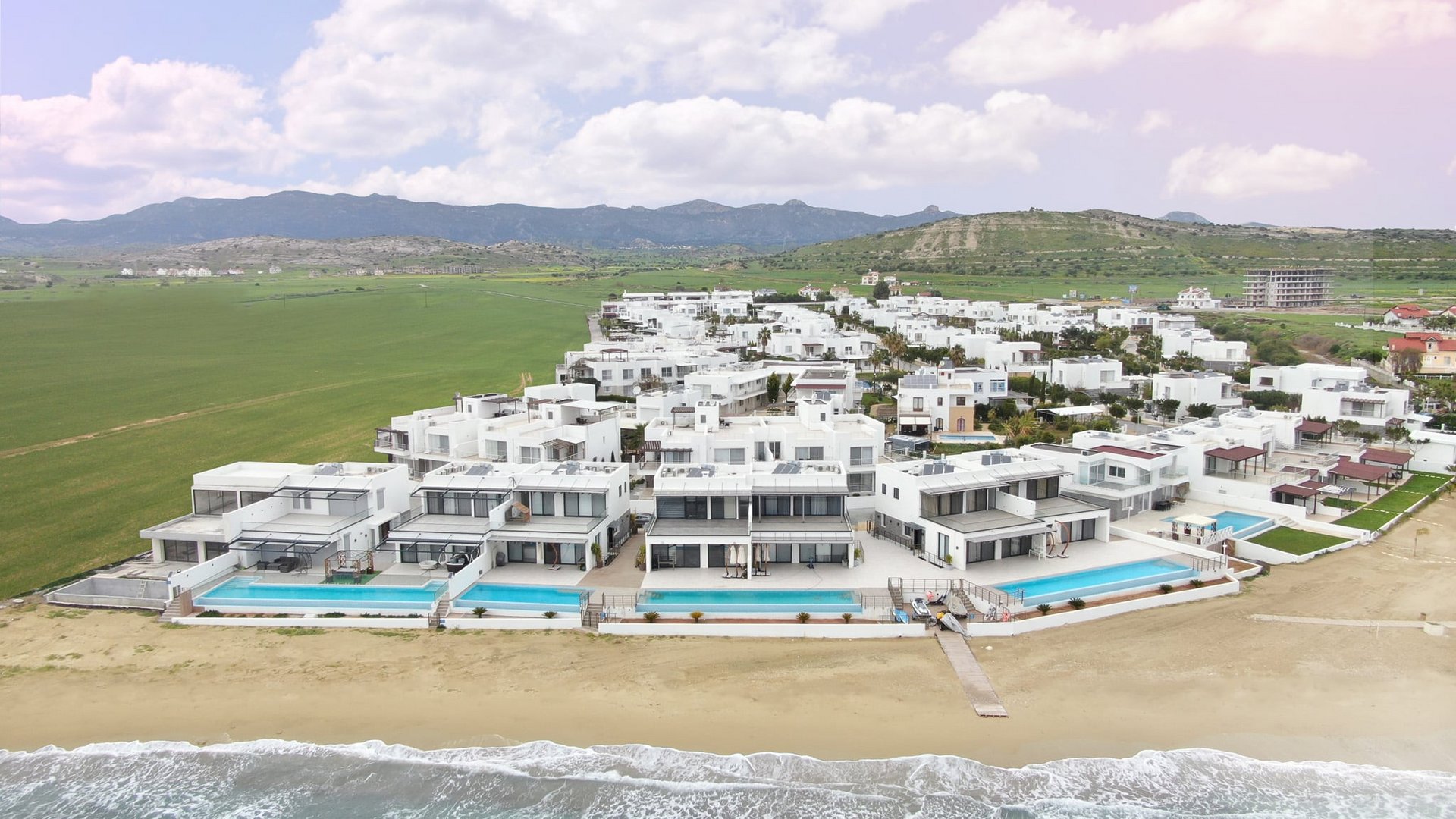The only way to revoke the yellow slip (MEU1 visa) given to Israeli national with an EU passport Yaacov Afik, who is building massive developments on Greek Cypriot land in the north, is for refugees who own that land to win a private court case against him, sources in the interior ministry told the Cyprus Mail on Friday.
Afik is described as an Israeli with a Portuguese passport, a passport from the ‘TRNC’ and a residency permit in the Republic of Cyprus.
Afik Group, the company registered by the man in the north, describes itself as an international development and construction company, which has over 8,000 property units for sale in the north, across Famagusta, Karpasia and Kyrenia. The firm operates in Israel, Turkey, Cyprus, Germany and Greece. It has offices in the north, Turkey and Germany.
But as shown in the company registrar, Yaacov, the firm’s CEO, in 2020, registered a company named Danilen Ltd with the Republic with himself as both director and secretary.
In a report on Friday in daily Politis, it emerged that Afik had not struck a deal or received permission from any of the Greek Cypriot owners of the land in Trikomo, Akanthou, and Karpasia, where he is building hotels and villas.
The land registry department had launched an investigation into the matter, whereby they had contact with dozens of the owners, who informed their officers and two police teams assisting that there had been no such deal made with Afik group.
Commenting further to the Cyprus Mail, sources close to the interior ministry said that with the data, and following the completion of the investigation, the owners of the land would be able to file a court case against him.
Regarding his yellow slip issued by the Republic, the sources said it is a sensitive issue, following information that emerged of Afik building in the north.
Sources said that nothing can be done to him legally, because to have a yellow slip revoked under EU law, the person needs to leave the Republic for more than 180 days, have performed a sham wedding, or be a public threat.
According to Cyprus Mail’s information on the matter, if the refugee landowners win a case filed against him in court, than the government would have the right to revoke his yellow slip, which would effectively deny him stay and re-entry, work, and engagement in business activities.
As Afik is a Portuguese passport holder, if found guilty in Cyprus, the ruling would have to be taken to court in Portugal, which will accept the Cypriot ruling as there is a legal precedent with the case Apostolides v Orams.
The case determined that although Cyprus does not exercise effective control in the north, cases decided in its courts are applicable through European Union law.
In 2002, David Charles and Linda Elizabeth Orams, from Hove, England invested £160,000 of their retirement fund to acquire the land from a third party and to construct a villa on the premises. The third party claimed to have acquired the property from the north’s breakaway regime.
After crossings opened in 2003, Meletios Apostolides, the refugee whose land the Orams built their home on, visited the property, and saw the development.
Apostolides took his case to the Nicosia District court, demanding the Orams vacate his property.
His case centred on the argument that although following the Turkish invasion the government of Cyprus had lost effective control over the northern part of the island, its laws still applied, even if these were not easily enforceable.
After appeals in Cyprus and the UK, the case went to the EU in 2009, which ruled British courts were able to enforce the judicial decisions made in Cyprus, which uphold the property rights of Cypriots forced out during the invasion.
The story about Afik broke when a Politis report suggested that the head of the bar association Christos Clerides’ law firm had legally represented Afik.
The Cyprus Mail had learned at the beginning of the month that President Nikos Christodoulides, the interior minister, as well as the foreign minister were “carefully following” the case, with the aid of technocrats also roped in.
Asked about the legal ramifications of the case, the source said the attorney-general is best-placed to assess the matter but sought to stress the importance of the ethical issue at stake.
“It’s not desirable for such things to be happening, after all the fights the Republic has given,” the government source said.






Click here to change your cookie preferences